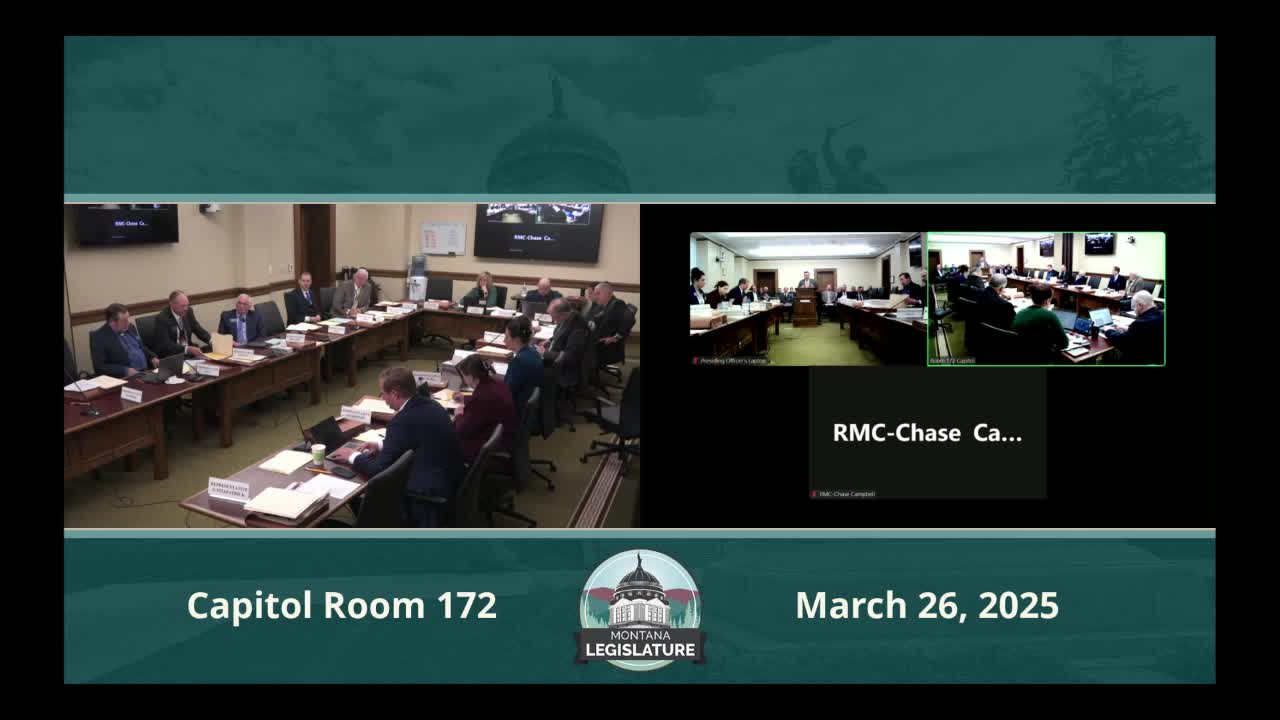Bill would let dealers file abandoned-vehicle lien claims in small or municipal courts instead of district court, sponsor says
Get AI-powered insights, summaries, and transcripts
Subscribe
Summary
Senate Bill 373 aims to ease how dealers and service providers clear abandoned vehicles from private lots by allowing lien claims in any court of competent jurisdiction rather than district court; proponents told the committee the change would save time and money, while no opponents appeared at the hearing.
Senate Bill 373, presented to the House Business and Labor Committee by Sen. Barry Usher, would amend Montana’s adjuster’s‑lien statute to let owners and service providers file claims in any court of competent jurisdiction — including small claims, municipal or justice courts — rather than requiring district court for all cases. Supporters told the committee the change would reduce time and legal expense for auto dealers, RV and boat dealers, contractors and farmers who hold property subject to liens.
Why it matters: Proponents said the current requirement to bring some lien matters in district court makes otherwise small, low‑value claims cost‑prohibitive. They urged the change would free up lot space, speed resolution and lower legal costs for smaller businesses across the state.
Sen. Barry Usher summarized the bill’s intent as “a cleanup bill” to streamline the lien process for abandoned vehicles and other property left in dealers’ care. He told the committee that the current district‑court requirement can take months or more than a year and that allowing filings in lower courts — where appropriate by claim value — would speed recovery.
Bruce Knudson, executive vice president of the Montana Auto Dealers Association, said the fix would benefit many classes of businesses and called the change “very simple.” Craig Charlton, attorney for the dealers association, said the adjuster’s lien originally addressed agricultural situations such as boarding livestock and that the proposed change ties the statute’s filing and notice steps to existing court procedural rules so clerks and litigants understand how notices and hearings will be scheduled.
Dealers described operational problems. Eric Henricksen, who owns two dealerships in Ronan, said he currently has eight inoperable or low‑value vehicles that occupy space and present handling challenges; three of his vehicles have been on the lot for more than five years. He said the current process is cumbersome and often requires hiring an attorney to use district court.
Proponents outlined notice and service rules included in the bill: certified mail and required clerk‑issued notices for hearings; they told the committee the legislation clarifies existing procedural steps rather than changing notice rights. Witnesses said the statute’s change does not eliminate notice to owners — it instead provides a clearer path to hearing scheduling in courts that handle lower dollar claims.
No opponents appeared in the committee room, though committee members asked several procedural questions about notice, storage fees and how the change would affect liability for property on a dealer’s lot. Sponsor Sen. Usher and proponents said the bill does not alter property‑owner liability for injuries on private lots and that the statute’s process still requires certified notice to defendants.
Next steps: The hearing concluded with the sponsor urging a due‑pass vote; the committee did not record a formal vote during the hearing.
